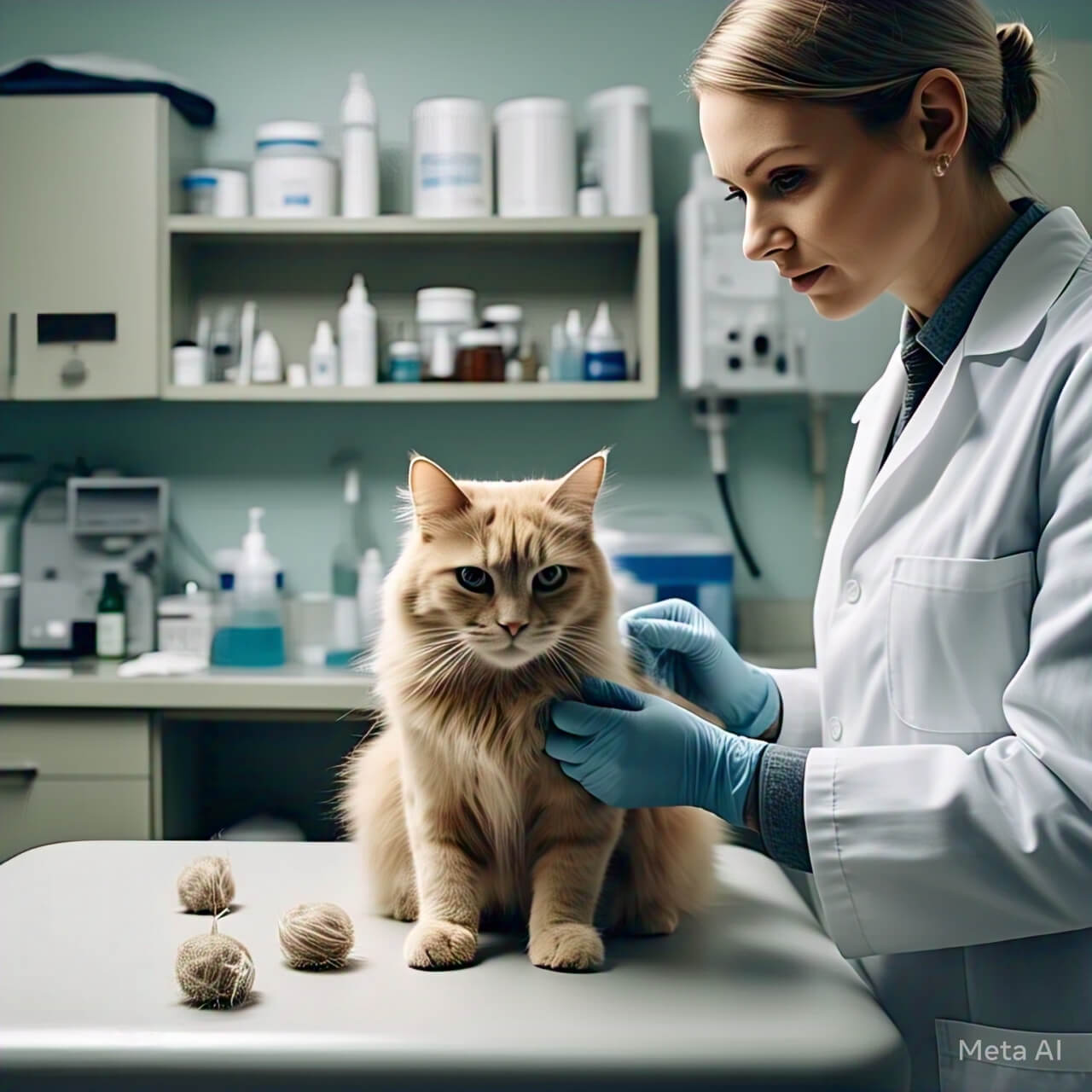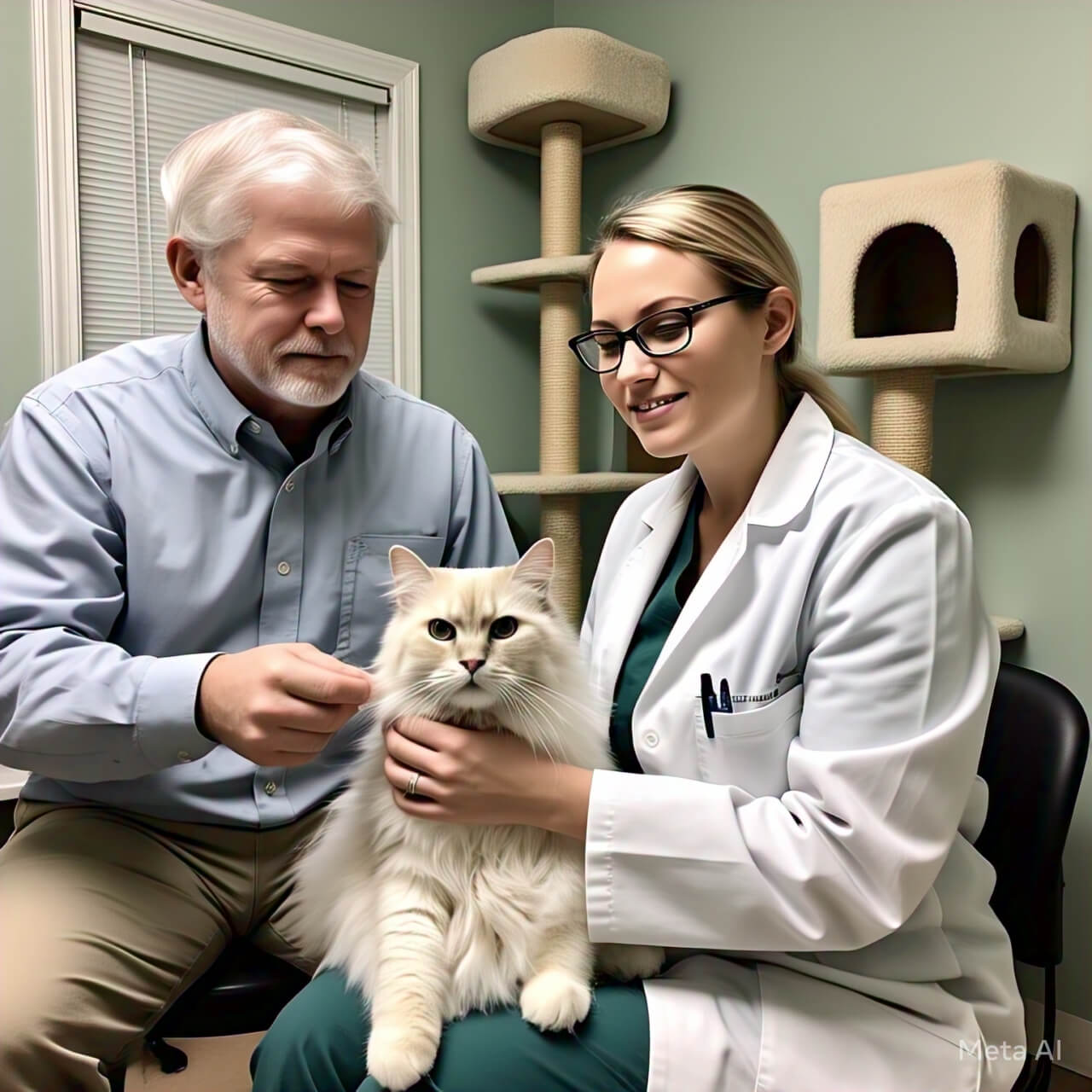How to Prevent Hairballs in Cats: Hairballs are a common issue for cats, especially those with long fur. When cats groom themselves, they swallow loose hair, which can form clumps in their stomach. Normally, cats vomit these hairballs, but sometimes, they can cause blockages or discomfort. Preventing hairballs is important to keep your cat healthy and happy. Regular grooming, a proper diet, and simple home care can reduce hairballs significantly.
In this article, we’ll discuss easy ways to prevent hairballs in cats. You’ll learn how brushing, hydration, and special cat food can help. We’ll also cover natural remedies and when to see a vet. By following these tips, you can make life easier for your feline friend.

10 Easy Tips to Prevent Hairballs in Cats
- Brush your cat daily.
- Give hairball-control cat food.
- Keep your cat hydrated.
- Use hairball remedy gels.
- Add fiber to their diet.
- Encourage exercise.
- Use anti-hairball treats.
- Try natural oils (like fish oil).
- Keep stress levels low.
- Visit the vet if needed.
1. Brush Your Cat Regularly
Brushing is the best way to reduce hairballs. When you remove loose fur, your cat swallows less hair while grooming. Short-haired cats need brushing 2-3 times a week, while long-haired cats need daily brushing. Use a soft brush or a grooming glove to make it comfortable.
Regular brushing also improves blood circulation and keeps the coat shiny. If your cat dislikes brushing, start slow and reward them with treats. Over time, they’ll get used to it.
2. Feed Hairball-Control Cat Food
Special cat foods help prevent hairballs. These foods contain extra fiber, which helps move hair through the digestive system. Look for labels like “hairball formula” or “high-fiber diet.”
Wet food is also helpful because it keeps your cat hydrated. Dry kibble with added fiber can work too. Ask your vet for the best option for your cat’s age and health.
3. Keep Your Cat Hydrated
Water helps digestion and prevents hair from clumping. Always provide fresh water in a clean bowl. Some cats prefer running water, so a cat fountain may encourage drinking.
Wet food has more moisture than dry food. Adding a little water to their meals can also help. Hydration keeps their digestive system working smoothly.
4. Use Hairball Remedy Gels
Hairball gels (like petroleum-based laxatives) help hair pass through the intestines. These gels are safe and come in flavors cats like. Give a small amount weekly or as directed.
These products lubricate the digestive tract, making it easier for hair to pass in stool instead of being vomited. Check with your vet before starting any new supplement.
5. Add Fiber to Their Diet
Fiber helps move hair through the digestive system. Pumpkin puree (not pie filling) or psyllium husk can be mixed with food. Start with small amounts to avoid stomach upset.
High-fiber cat foods or treats are also available. Fiber keeps bowel movements regular, reducing hairball risks.
6. Encourage Exercise
Active cats digest food better and shed less hair. Play with your cat daily using toys, laser pointers, or feather wands. Exercise also reduces stress, which can cause excessive grooming.
A healthy weight also improves digestion. Overweight cats groom less efficiently, leading to more hair ingestion.
7. Use Anti-Hairball Treats
Some cat treats contain fiber or oils to prevent hairballs. These treats are tasty and help digestion. Give them as a snack between meals.
Look for natural ingredients like malt extract or omega fatty acids. Always follow feeding guidelines to avoid overfeeding.
8. Try Natural Oils (Like Fish Oil)
Fish oil or coconut oil helps lubricate the digestive tract. A small amount mixed with food can prevent hairballs. Omega-3 fatty acids also improve skin and coat health.
Start with a tiny dose and increase slowly. Too much oil can cause diarrhea.
9. Reduce Stress to Prevent Over-Grooming
Stressed cats groom too much, swallowing more hair. Keep their environment calm with hiding spots, scratching posts, and routine.
Use pheromone sprays if needed. Playtime and affection also reduce anxiety.
10. Visit the Vet If Hairballs Are Severe
If your cat coughs often, vomits frequently, or seems in pain, see a vet. Severe hairballs can cause blockages needing medical treatment.
Your vet may recommend tests or prescribe special diets. Early care prevents serious problems.

FAQs About Hairballs in Cats
| Question | Answer |
|---|---|
| Are hairballs dangerous? | Usually not, but frequent vomiting or blockages need vet care. |
| How often do cats get hairballs? | Some cats get them weekly, others rarely. Long-haired cats get more. |
| Can I use olive oil for hairballs? | Yes, a small amount can help, but fish oil is better. |
| Do hairball remedies work? | Yes, gels and high-fiber foods help reduce hairballs. |
| When should I worry? | If your cat stops eating, seems weak, or vomits blood, see a vet. |
By following these simple steps, you can keep your cat happy and hairball-free.









